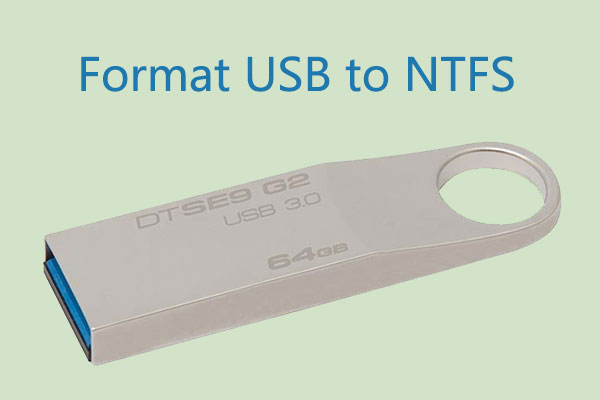
- #USB DRIVE FORMAT FAT32 OR NTFS MAC OS#
- #USB DRIVE FORMAT FAT32 OR NTFS INSTALL#
- #USB DRIVE FORMAT FAT32 OR NTFS UPDATE#
NTFS actually writes to the flash memory even when "Reading". This guy is pretty well versed on the subject. and if you want to learn why NTFS has an impact, check out OK Git if you REALLY want to learn about wear leveling, here's a whitepaper by Sandisk
#USB DRIVE FORMAT FAT32 OR NTFS UPDATE#
Hey doogie, thanks for the update in the other post.

I know nothing about these drives except for some of the terms used, and there doesn't seem to be anything in simple lingo about the technology. Why would NTFS 'use up' the life of the drive faster? Here are the steps: Open cmd and type diskpart in the Run. In 10 years time, prob even 2 or 3 years time, a 16GB GT drive will be worth the same in value as a 256MB drive nowadays, and the transfer rates would be comparable to IDE/SATA (even though we will probably all be using Flash drives instead of mechanical hdd at that time anyway) but, I digress. Part 1 - format usb drive fat32 quick with diskpart. If you have formatted your USB using Better Performance policy to remove a device safely without data loss use a 'safely remove hardware' procedure or Eject function from Windows Explorer.
#USB DRIVE FORMAT FAT32 OR NTFS MAC OS#
Click the Start button and wait until finished. The overwhelming majority of USB flash drives you buy are going to come in one of two formats: FAT32 or NTFS.The first format, FAT32, is fully compatible with Mac OS X, though with some drawbacks. Choose NTFS in the File System drop-down box.
#USB DRIVE FORMAT FAT32 OR NTFS INSTALL#
Download Partition Expert Installation package or the portable edition if you don't want to install the program FAT and FAT32 are used for almost every operating system, and theyre faster and dont use as much memory. Windows Disk Management alternative Partition Expert can format USB with ease in fact, it can more than the Windows default disk managing utility.

Now the USB drive is listed in the disk-map, you can right-click on it and choose " Format" to continue. Press Windows Key + R to open Run box and type " diskmgmt.msc" to open the snap in tool. When you plugged in the USB, press Windows Key + E to open file explorer when it doesn't popup automatically, or just double-click Computer(Windows 7) / This PC (Windows 10) to access file explorer, and then right-click on it, choose Format and select one file system (FAT32, or NTFS ) to continue #2, Disk Management to format USBĭisk Management has the ability to format USB too, no matter what Windows System you're using, you can use the following way to run Disk management quickly: In Windows 10 and other Windows System, we have many ways to format: #1, File Explorer to format USB

In order to delete everything on the USB flash drive and have an empty disk or change file system to match other operating system, we need to format it or pick up a new file system for it.


 0 kommentar(er)
0 kommentar(er)
